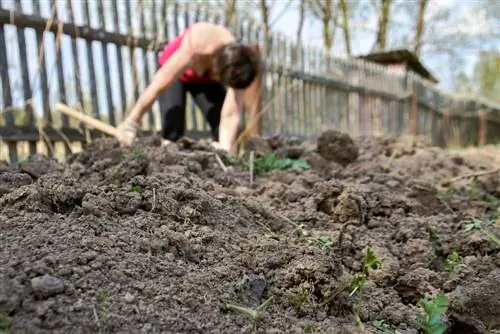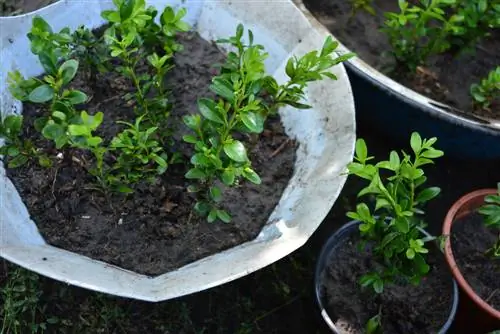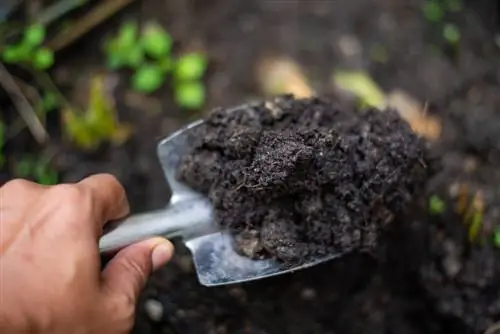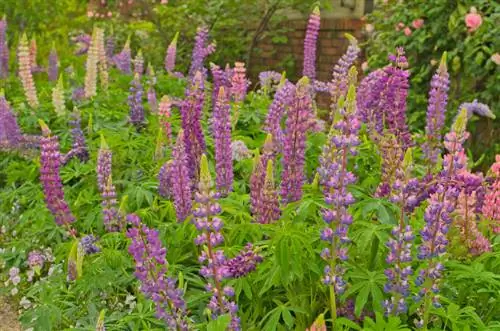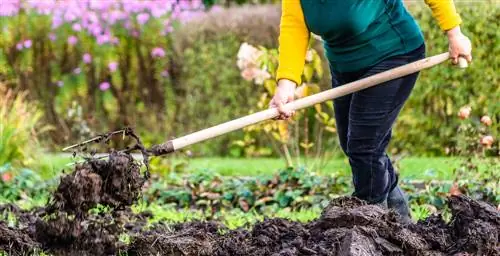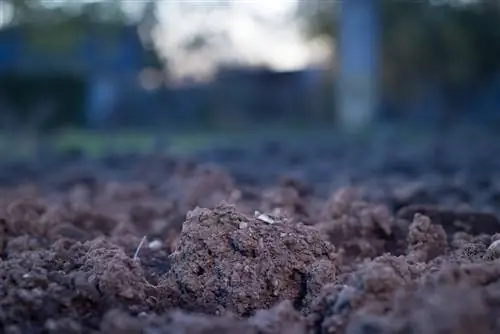- Author admin leonars@hobbygardeners.com.
- Public 2023-12-16 16:46.
- Last modified 2025-01-23 11:21.
So that your plants grow well and bloom abundantly or you get a bountiful harvest, you need ideal growing conditions: good soil combined with the right location. As a gardener, you can at least influence the quality of the soil.
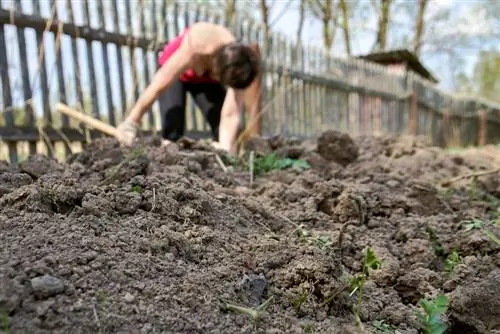
How can I improve my garden soil?
To improve the garden soil, you should first determine the type of soil, possibly carry out a soil analysis and incorporate compost or sand. A well-rotted compost helps to loosen heavy soil and increase its water-holding capacity.
Why should I improve my garden soil?
Only if the soil provides all the nutrients your plants need will they thrive. However, if one or more minerals are missing, growth suffers. The situation is similar if the soil is too dry or too firm.
What floor do I have?
Before you want to change anything about your soil, you should first determine what it is like. To do this, form a handful of soil into a ball and roll it between your hands.
If the soil crumbles, you have sandy, light soil. If it sticks, the soil is clayey and heavy. Ideally it is smooth and not sticky and you have a perfect clay-sand soil.
How can I improve my garden soil?
If your soil is very sandy, rain and irrigation water drain well. Root rot will not occur. This soil also warms up relatively quickly, which allows your plants to grow well. However, it dries out quickly if it is dry for a long time. You can change this relatively easily by incorporating compost or leaves or mulching your beds.
Loamy soil stays cool for a long time and only warms up late, which inhibits plant growth in spring. The solid soil structure isn't exactly helpful either. In addition, clay soil stores a lot of water, which often leads to waterlogging and root rot. Work compost and/or sand into the clay soil to make it looser and more permeable.
With a soil analysis you can determine a nutrient deficiency in the soil and then fertilize your beds as needed. If you use a universal fertilizer (€10.00 on Amazon), then keep in mind that over-fertilization can also harm your plants.
The most important things in brief:
- Determine soil type
- possibly have a soil analysis carried out
- only supply nutrients that are really missing
- general nutrient enrichment through compost possible
- Promotion of permeability by adding sand
Tip
With well-rotted compost you can loosen up heavy soils as well as improve the storage capacity of dry soil.

